All Stories
-
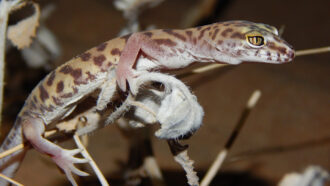 Animals
AnimalsWatch how a western banded gecko takes down a scorpion
New high-speed video reveals how normally mild-mannered geckos can violently shake venomous prey into submission.
-
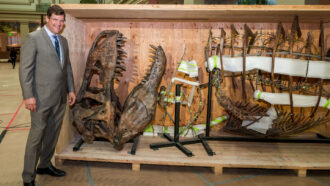 Fossils
FossilsCool Jobs: Bringing paleontology to the people
From museums to movies, these three paleontologists totally rock their connections with the public.
By Beth Geiger -
 Science & Society
Science & SocietyGood at reading? That’s no sign girls won’t also cut it in STEM
U.S. parents read to their daughters, but few coach them on math. This may explain why girls excel at English but aren’t sure STEM is for them.
-
 Space
SpaceBehold: The biggest known comet in our solar system
This “dirty snowball” in space is about twice as wide as Rhode Island and darker than coal.
By Sid Perkins -
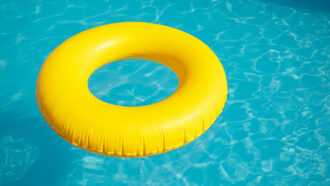 Tech
TechTeens’ new tech would send alerts to reduce preventable deaths
A trio of teen innovations created devices that can speed up the response time to pool accidents, overheating in cars and combat-related injuries.
By Anna Gibbs -
 Animals
AnimalsA dog’s breed doesn’t say much about its behavior
Many people associate dog breeds with specific behavioral traits. But breed appears to account for only about 9 percent of behavioral differences.
By Anna Gibbs -
 Physics
PhysicsScientists Say: Inertia
Inertia is the tendency of objects to resist changes in their motion.
-
 Climate
ClimateCoastal cities around the world are sinking, satellite data show
Of 99 coastal cities studied, nearly one-third are sinking. This leaves coastal communities increasingly vulnerable to rising seas.
-
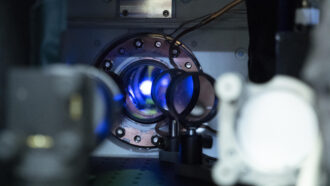 Physics
PhysicsA new clock shows how gravity warps time — even over tiny distances
This clock measured how gravity changes the passage of time in different places — even spots just one millimeter apart.
-
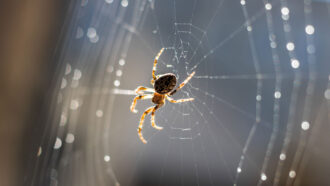 Animals
AnimalsOrb-weaving spiders use their webs like external eardrums
Scientists discover that orb-weaving spiders listen with their legs, detecting sound vibrations that travel through their silken webs.
-
 Humans
HumansLet’s learn about sleep
Sleep is key for health and wellbeing — but early school start times and screen time make it harder for teens to get shuteye.
-
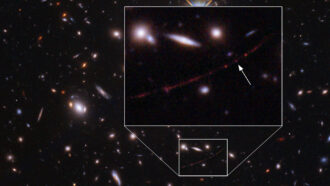 Space
SpaceA star called ‘Earendel’ could be the most distant ever seen
A thin red arc found in an image from the Hubble Space Telescope shows starlight from nearly 13 billion years ago.
By Liz Kruesi